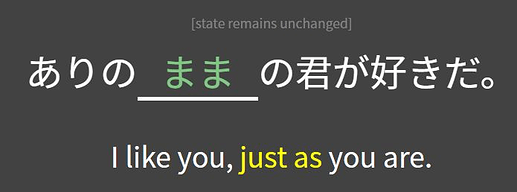To be honest, it’s not something that I every really considered for a very long in my studies until recently. There is plenty of media available for learning vocabulary, plenty for learning grammar and plenty for even learning particles. But collocations, not a whole lot.
It only became apparent when I started seen some real gaps in my learning. I was learning thousands of vocabulary words, but not always knowing how to connect them. For instance, one time I though about how I would say “to remove hair dye” in Japanese. My first inclination was to say 染めを消す、when the most common way to say it seems to be 染めを落とす which carrys the imagery of the dye falling off rather than erasing it. If I would have said 染めを消す to a native speaker, they probably would have understood what I was trying to say, but it would not sound as natural. And they may or may not have done me the favor of correcting me. (And trust me, if you have a native speaker in your life who consistently corrects you, that is pure gold)
So this repeated in many things. I can say frying pan, or air conditioner, or car. But can I say put the frying pan on the burner, lower the thermostat on the AC, change the filter on my car. I searched Anki for a common collocations flashcard deck and nothing came up. A friend has referred me to a Japanese website that has a plethora of collocations, but it’s more dictionary based.
I can most certainly see why there isn’t much focus based on this. I think the general consensus is that you should be able to pick up on collocations once you know enough grammar and vocabulary. It exists in the strange space somewhere in the middle of it all. But that can be said for a lot of aspects of the language. And trust me, I’ve probably listened to thousands of hours of Japanese content over the years, some things for me just don’t stick until I lay it out and study it.
So sometimes you just gotta do like Thanos and do it yourself. I’ve own two common collocation books and am slowly converting one into flashcards. The book is Common Japanese Collocations which I highly recommend if you already have a few thousand vocabulary words under your belt and have gone through most of N4 grammar. The book say on my shelf for years and I paid it no mind until I racked up a good amount of vocab. I do have every intention of uploading it once I’ve completed it. Unless anyone knows of a really good flashcard deck or program for learning collocations. Otherwise, I’ll press on and at least contribute something to the community.

 . For example somewhere in my decks there is a 夢 card, somewhere else there is a 見る card, and in a later deck there is 夢を見る card. I usually do this for any collocation that is not the same as English.
. For example somewhere in my decks there is a 夢 card, somewhere else there is a 見る card, and in a later deck there is 夢を見る card. I usually do this for any collocation that is not the same as English.


 Maybe the deck is already finished, then?
Maybe the deck is already finished, then? 